Where is the Arctic border?
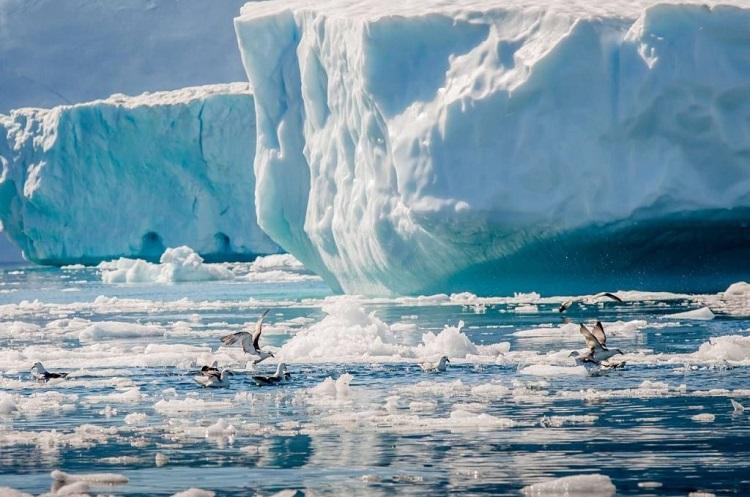
The Arctic is defined by scientists as the area above the Arctic Circle – the line surrounding the North pole at latitude 66 ° 30‘ north latitude. There are days on it once a year when the sun does not rise, and days when it does not rise above the horizon.
The Arctic includes the coasts of 8 countries
The Arctic consists of the Arctic Ocean and the coasts of Greenland (Denmark), Iceland, Norway, Russia, the USA (Alaska), Canada, as well as parts of Sweden and Finland.
The Arctic is an ocean surrounded by land
In 1958, the submarine USS Nautilus traveled under the frozen ice of the Arctic Ocean, proving that a huge ice sheet covers water, not land. The Arctic is, first of all, an ocean surrounded by land, and Antarctica is, first of all, a land surrounded by an ocean.
Polar day and night in the Arctic last for several months
This is a natural phenomenon that occurs in places north of the Arctic Circle in the Northern Hemisphere. Of course, for about six months, night and day here last only at the North Pole, but in other parts of the region their duration can be several months.
There is more than one pole
The northernmost point on the Earth’s surface is the geographical North Pole, also known as the True North. To the south is the Magnetic North Pole, which is indicated by all magnetic compasses. This point is not fixed and is constantly changing.
The first person to reach the North Pole
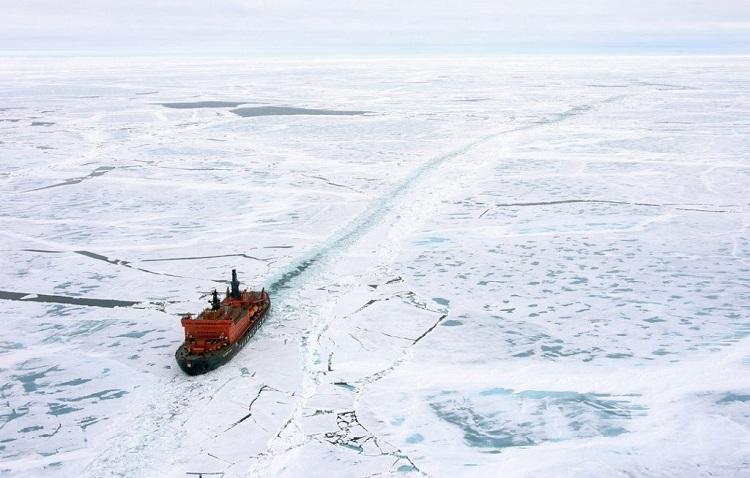
American explorer Robert Peary has long been considered the first person to reach the geographical North Pole (April 6, 1909). However, in the 1980s, a study of his expedition diary called into question whether he had actually reached the pole. Navigation errors could mean that Piri had only advanced to a point 50-100 km from the pole.
There is no time zone at the poles
If you are standing at the North or South Pole, you will be in each time zone at once, because all the lines that delimit time zones start at the poles.
The North-Western route was completed only in 1906
The search for the Northwest Passage was one of the most difficult maritime tasks in the world, requiring a dangerous journey through tens of thousands of giant icebergs. It was passed only in 1906, when the legendary Norwegian explorer Roald Amundsen and his team made a flight from Greenland to Alaska.
The word “Arctic” means bear
The name “Arctic“ appeared due to the Greek word “arktos”, which means “bear”. This region got its name because, for observers to the south of it, it is located approximately under the part of the starry sky where the constellation Ursa Major is visible.
It’s very cold in the Arctic
In the Arctic, the average winter temperature is -40 °C (-40 °F). In northern Greenland, a temperature of -70 °C (-94 ° F) was recorded.
Polar bears and walruses live only in the Arctic
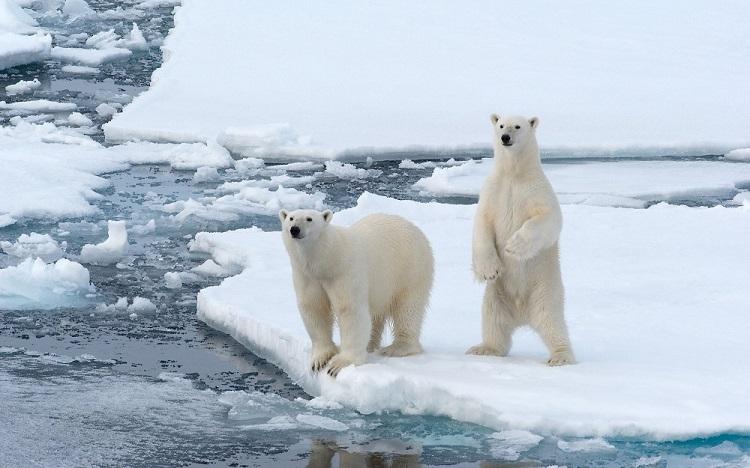
Besides them, there are real seals, whales and smaller mammals. The marginal zone of the Arctic ice is rich in fish, krill and plankton. The melting of the ice threatens the death of many animals living here.
Arctic animals are perfectly camouflaged
Most Arctic animals have white fur or plumage all year round, or change color depending on the time of year. This helps them keep warm and disguise themselves on the snow and ice cover.
The largest nature reserve is located in the Arctic
The Great Arctic Reserve is located here, covering an area of more than 40,000 km2, which is approximately the same area as the whole of Switzerland. It belongs to Russia – only our country can allocate such an area for a nature reserve.
The first indigenous inhabitants of the Arctic
Members of the Eskimo tribe are considered the first indigenous inhabitants of the Arctic. Today, more than four million people live in the Arctic, with the indigenous population being a minority.
The Northern Lights beyond the Arctic Circle
The polar region makes it possible to regularly see the northern lights. This stunning natural phenomenon occurs when charged particles from the sun become trapped in the Earth’s magnetic field, resulting in a light show.
Huge oil and gas reserves have been explored in the Arctic
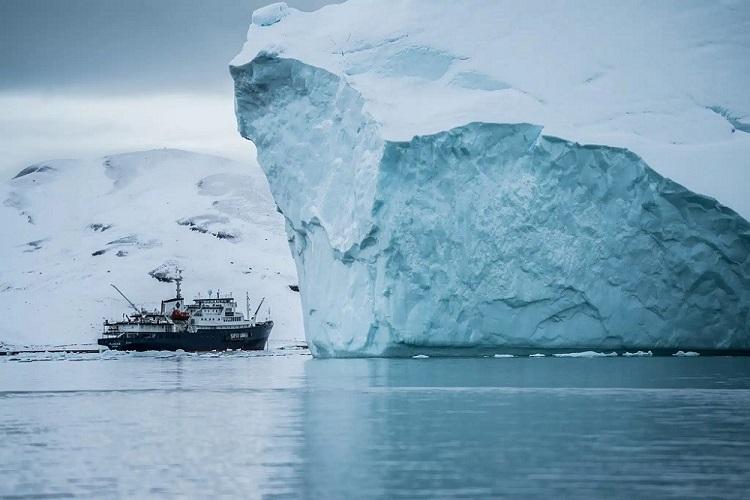
Oil reserves here are estimated at about 90 billion barrels, which, while maintaining the level of consumption, will last the whole Earth for about 150 years. However, it is difficult to develop these deposits without harming the local ecology.
Narwhals are found only in the Arctic
The Arctic is the only place on Earth where you can see a narwhal. These whales are known as the “unicorn of the sea”. Male narwhals have a straight tusk protruding from the front of their head. The tusk can grow up to 3 meters in length.
The world’s largest seed storage facility is located in the Arctic
The world’s largest secure seed storage facility is located in the Arctic. The Global Seed Repository in Svalbard currently holds 980,000 samples to protect against future natural or man-made disasters.
Greenland is covered by an ice sheet
The Greenland Ice Sheet covers approximately 80% of Greenland’s land surface. As a rule, it is thicker than 2 km (3 km in its thickness) and is the second largest ice mass in the world. Only the Antarctic ice sheet is bigger.
The Arctic Ocean is the smallest of the world’s oceans
The Arctic Ocean is the smallest of the world’s oceans. Its area is only 14 million square kilometers. This is about a tenth of the size of the Pacific Ocean.
The Arctic is warming faster than other parts of the planet
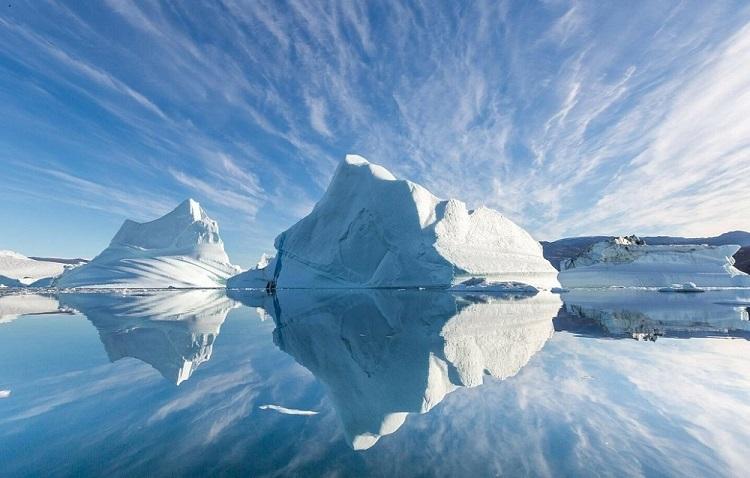
The Arctic is the most vulnerable region in the face of global warming, temperature conditions here are changing much faster than anywhere else on Earth, and the area of Arctic ice has decreased by about 70% over the past 50 years.
There is less ice in the Arctic
In 2018, the Arctic Ocean experienced the second largest decrease in the area of sea ice in the entire history of observations. Parts of Greenland have been exposed to the open ocean for the first time in millennia. Ice reflects up to 80% of the sunlight that falls on it. The water surface of the ocean, for comparison, absorbs about 90% of solar radiation.
The Arctic is facing an environmental disaster
Arctic ice reflects the sun’s rays and prevents the Earth from overheating. But scientists believe that by the end of the 21st century, long-term ice may completely melt in the summer. The Arctic is threatened by an environmental disaster – the ice cap in the ocean is decreasing, and animals from the temperate climate zone are beginning to move further north, competing with the local fauna.
Loss of sea ice poses a threat to polar bears
The loss of sea ice poses a serious threat to polar bears, which live only in the Arctic. They hunt seals on the ice cover. And the lack of ice forces them to go out on land in search of food, which is often not enough. Therefore, polar bears often starve on the coast.
